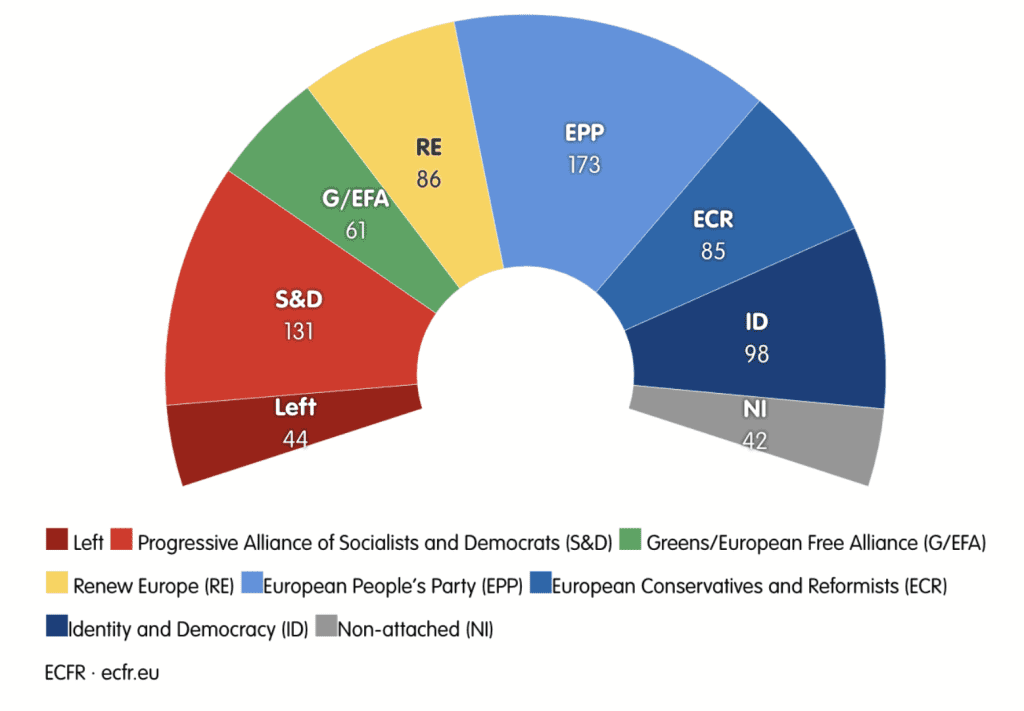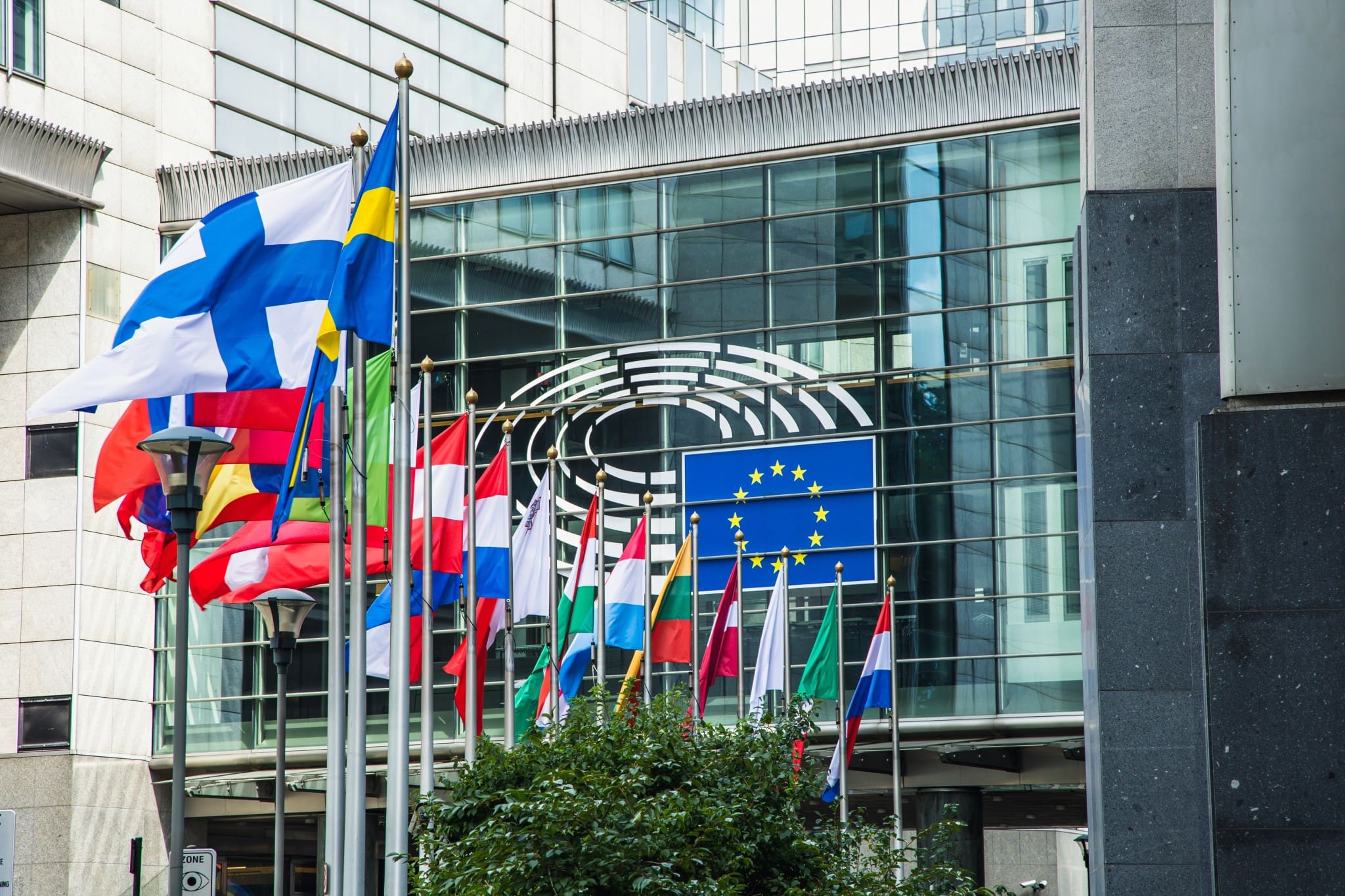The European parliamentary elections to be held in June could be the most explosive yet, with new polling suggesting a considerable shift in its composition to right-wing populist parties.
According to research conducted by the European Council on Foreign Relations (ECFR), the EU legislature will become more fragmented than ever before, with the “old guard” center-left liberal coalition struggling to retain the majority that currently enables it to dominate the agenda.
“The main winners in the elections will be the populist right. The major winner will be the radical right Identity and Democracy (ID) group, which we expect to gain 40 seats and, with almost 100 MEPs, to emerge as the third largest group in the new parliament,” the Berlin-based think-tank forecasts.
The ID group is predicted to dominate in France, in particular. The group, to which Jordan Bardella’s Rassemblement National is affiliated, would receive the most votes, amassing 30 seats from the available 81. The group would be the most popular choice in the Netherlands also, taking 10 seats from the 31 on offer and continuing the success of Geert Wilders’ Party for Freedom (PVV), which recently won the Dutch election.

Meanwhile, the center-right European Conservatives and Reformists (ECR) group is also predicted to gain 18 seats due to the rise of Italian Prime Minister Giorgia Meloni’s Brothers of Italy (FdI) party, and undeclared national parties including the governing Fidesz in Hungary could also increase their seat total.
“We expect the ECR and ID groups together to account for 25 percent of MEPs, and have more
seats combined than the European People’s Party (EPP) or the Socialists and Democrats (S&D) for the first time,” the European Council on Foreign Relations report notes.
The research suggests that the “super grand coalition” of the EPP, S&D, and the Renew Europe liberals could struggle to control the chamber in the next parliament, predicting the groups could hold just 54 percent of the seats compared to its current 60 percent.
“With the average level of voting cohesion within groups in the European Parliament — which means that each group cannot always guarantee all their MEPs will follow the group voting instructions — 54 percent of the seats might not be enough for these three groups to guarantee a winning majority when they vote together,” the think-tank writes.
It also observed that a potential “populist right coalition” could form between the EPP, the ECR, and ID groups that could attain 49 percent of the seats and control the agenda with the backing of undeclared MEPs.
“The majority of the non-attached MEPs are from extreme right parties, meaning that with their
support, majority coalitions could form to the right for the first time in the history of the European Parliament.”
Furthermore, the number of anti-EU lawmakers heading to Strasbourg is also expected to rise significantly from 30 percent to 37 percent, providing greater representation to an increasingly growing number of the electorate disillusioned with the European Union’s current direction of travel.
The European Council on Foreign Relations wrote that its report should serve as a “wake-up call” for “European policymakers about what is at stake in the 2024 European Parliament elections,” warning that a dramatic change in the legislature’s composition could see the next phase of Brussels’ Green Deal blocked and would have implications for the EU’s approach toward immigration, future enlargement of the bloc, and its currently unwavering support for Ukraine.
The vote also acts as a precursor to upcoming national elections in the next couple of years where the populist right could also make substantial gains, including in Europe’s powerhouse of Germany.





